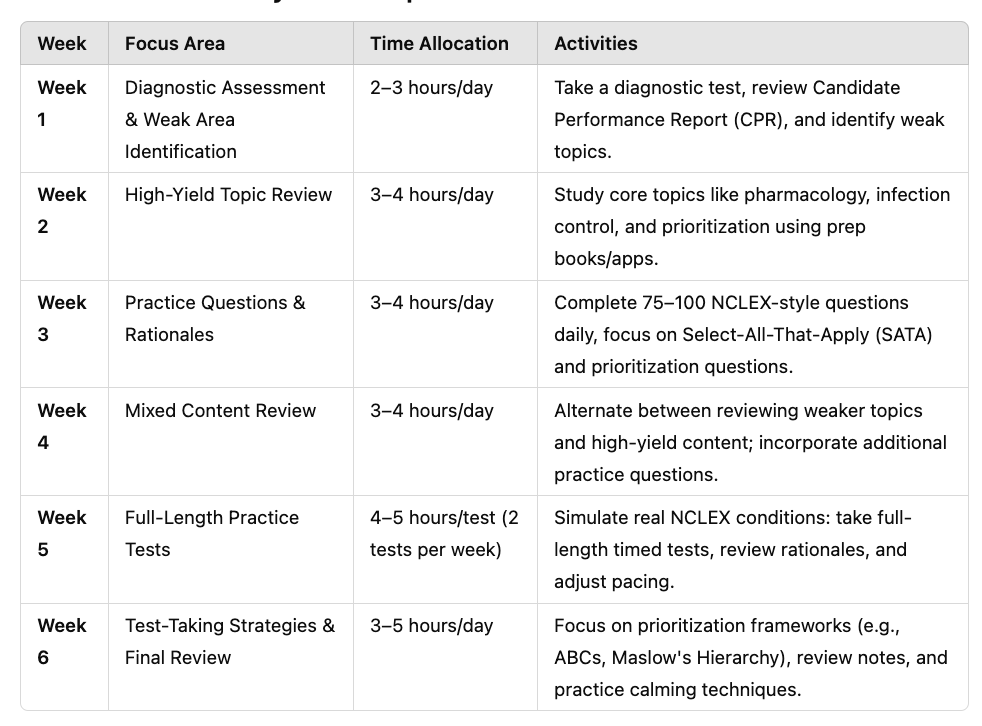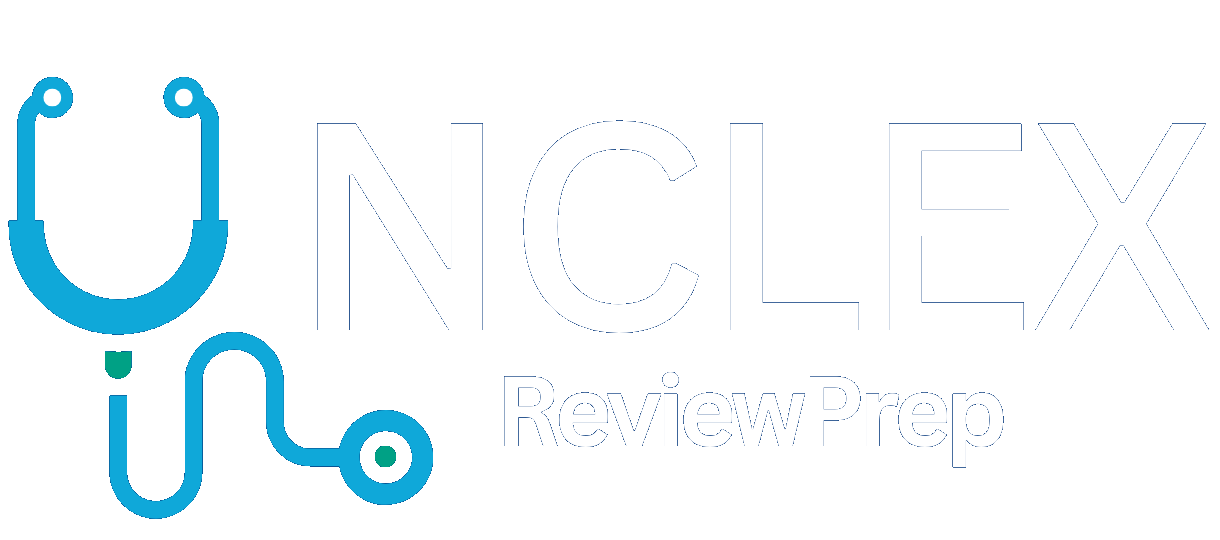
82% Success Story: How Many People Pass the NCLEX on Their First Try and How You Can Too!
How many people pass the NCLEX on their first try? Passing the NCLEX (National Council Licensure Examination) on the first attempt is a critical milestone for aspiring nurses. Not only does it determine your readiness to practice, but it also reflects your preparation, confidence, and mastery of nursing knowledge.
But how many people actually pass on their first try? Understanding NCLEX pass rates, influencing factors, and preparation strategies can help you join the majority who succeed the first time around.
This article seeks to address 4 key concepts;
- How many people pass the NCLEX on their first try?
- First-Time NCLEX Pass Rates Explained,
- Success Rates for NCLEX First-Time Test-Takers,
- How to Increase Your First-Time NCLEX Pass Chances?
We will take a deep dive into NCLEX pass rate statistics, the reasons behind first-time success, and actionable tips to maximize your chances of passing on the first attempt.
NCLEX Pass Rate Statistics: What You Need to Know
Every year, the National Council of State Boards of Nursing (NCSBN) releases NCLEX pass rates for test-takers. These rates provide valuable insight into the exam’s difficulty and highlight the success rate for first-time candidates.
1. NCLEX-RN: First-Time NCLEX Pass Rates Explained: First-Time Test-Takers
For candidates taking the NCLEX-RN (Registered Nurse), here’s a snapshot of the performance of U.S.-educated candidates over the past three years:
| Year | Pass Rate for First-Time Candidates |
|---|---|
| 2022 | 82.32% |
| 2021 | 86.57% |
| 2020 | 87.5% |
What This Means:
- Over 80% of first-time candidates pass the NCLEX-RN exam. This statistic highlights that the exam is challenging, but with focused preparation, success is achievable.
- The slight decline in pass rates over recent years reflects growing exam difficulty and pandemic-related disruptions to nursing education.
2. NCLEX-PN Pass Rates: First-Time Test-Takers
The NCLEX-PN exam, designed for Practical or Vocational Nurses, has slightly lower pass rates than the NCLEX-RN. Here’s how candidates have performed:
| Year | Pass Rate for First-Time Candidates |
|---|---|
| 2022 | 79.93% |
| 2021 | 83.68% |
| 2020 | 83.85% |
Why the Difference?
NCLEX-PN candidates may have fewer practice hours compared to RN candidates, which affects performance. However, strong preparation still ensures success.
3. International Candidates and Repeat Test-Takers
Pass rates vary significantly for international test-takers and those retaking the NCLEX:
| Candidate Type | RN Pass Rate (2022) | PN Pass Rate (2022) |
|---|---|---|
| U.S.-Educated First-Time | 82.32% | 79.93% |
| International First-Time | 46.48% | 46.86% |
| Repeat Test-Takers | 44.14% | 35.60% |
Key Insights:
- U.S.-educated candidates outperform international candidates due to alignment with NCLEX testing standards.
- Pass rates for repeat test-takers highlight the importance of identifying weaknesses and using focused preparation tools.
Internal Link: Struggling to pass the NCLEX? Explore our RN/PN Exam Score Updates service to assure your success in the exam.
Success Rates for NCLEX First-Time Test-Takers: What Makes First-Time NCLEX Test-Takers More Successful?
Understanding the factors that contribute to first-time success can help you optimize your preparation and avoid common mistakes.
1. Comprehensive Nursing Education
The quality of your nursing program plays a vital role in NCLEX success. Accredited programs ensure:
- Strong foundation in core nursing concepts.
- Clinical exposure that develops critical thinking.
- Regular practice with NCLEX-style questions.
Case Study:
Nursing schools with a strong focus on NCLEX prep often report pass rates above 90% for first-time candidates. If your school didn’t emphasize NCLEX-style testing, supplementing with quality resources is essential.
2. Effective Study Plans
First-time passers often follow structured study schedules that include:
- Daily content review and practice questions.
- Weekly mock exams to simulate test conditions.
- Analysis of incorrect answers to identify weak areas.
Study Tip: Break your preparation into focused phases:
- Weeks 1–2: Review weaker subjects.
- Weeks 3–4: Focus on NCLEX-style practice questions.
- Weeks 5–6: Full-length timed practice exams.
3. Practice, Practice, Practice
Completing at least 2,000–3,000 NCLEX-style questions is a common trait among successful candidates. Practice questions help you:
- Familiarize yourself with the NCLEX format.
- Build confidence with complex question types like Select-All-That-Apply (SATA).
- Develop critical thinking under time constraints.
Pro Tip: Platforms like UWorld and RN Exact Exam Questions are excellent tools for comprehensive practice.
4. Managing Test Anxiety
Test anxiety is a major obstacle for many candidates. First-time test-takers who perform well often use strategies like:
- Deep breathing exercises to calm nerves.
- Positive visualization of passing the exam.
- Full-length timed practice tests to reduce uncertainty.
Are you overwhelmed with anxiety? This service enables you to get your nclex license even without siting for the exams.
What Happens If You Don’t Pass the NCLEX on the First Try?
While most candidates succeed on their first attempt, some may need to retake the exam. If this happens, it’s important to approach your preparation strategically.
1. Identify Weaknesses with a Detailed Score Report
After failing the NCLEX, candidates receive a Candidate Performance Report (CPR). This report highlights:
- Areas of strength and weakness.
- Topics where additional focus is required.
Tip: Use the CPR to create a targeted study plan for your next attempt.
2. Reassess Your Study Strategy
If your study methods didn’t work the first time, make adjustments:
- Focus on practice questions and rationales.
- Consider enrolling in an NCLEX prep course.
- Schedule regular mock exams to improve pacing and confidence.
Internal Link: Need pass on your second attempt? Our RN/PN Exam Score Updates service can guide you toward success.
How to Improve Your Chances of Passing the NCLEX on the First Attempt: How to Increase Your First-Time NCLEX Pass Chances
While the NCLEX is a challenging exam, you can significantly improve your success rate with a strategic approach. Here’s a step-by-step guide to help you boost your confidence and preparation.
1. Create a Comprehensive Study Plan
A detailed study plan is your foundation for NCLEX success. Candidates who pass on their first try often stick to a schedule that balances content review, practice questions, and test simulations.
Steps to Build an Effective Study Plan:
- Set Your Study Duration: Allocate 6–8 weeks for focused preparation.
- Identify Weak Areas: Use a diagnostic test to highlight topics needing more attention.
- Daily Schedule:
- Morning: Review new content (e.g., pharmacology, patient safety).
- Afternoon: Complete 75–100 NCLEX-style practice questions.
- Evening: Analyze incorrect answers to understand mistakes.
| Sample Weekly Plan | Focus | Time Allocation |
|---|---|---|
| Week 1–2 | Review weak content areas | 2–3 hours daily |
| Week 3–4 | Mixed review and questions | 3–4 hours daily |
| Week 5–6 | Full-length practice exams | Timed simulations |
Below is a 6-Week NCLEX Study Plan Blueprint.

2. Use the Right NCLEX Resources
Your choice of study materials can make or break your NCLEX preparation. Here are some of the top resources that successful candidates recommend:
- UWorld NCLEX: Best for realistic practice questions and detailed rationales.
- Saunders Comprehensive Review: Ideal for mastering content and key concepts.
- Kaplan NCLEX Prep: Strong for test-taking strategies and simulated exams.
Find out what is on the nclex exam and how to be better prepared for the exam
Practice Questions: Why They Matter
Practice questions prepare you for the real exam by:
- Improving your ability to answer complex scenarios.
- Building stamina for the 5-hour exam duration.
- Helping you master alternative formats like SATA and drag-and-drop.
Goal: Complete at least 3,000 practice questions before your exam date.
3. Master Test-Taking Strategies
Success on the NCLEX requires not just knowledge but also strategic test-taking skills.
Essential Strategies for NCLEX Success:
- Elimination Method: Cross out clearly incorrect answers to narrow down choices.
- Prioritize Safety: Use frameworks like:
- ABCs (Airway, Breathing, Circulation): Focus on life-threatening concerns first.
- Maslow’s Hierarchy of Needs: Address physiological needs before psychological ones.
- Understand SATA Questions: Treat each option as a separate “true/false” question.
4. Manage Test Anxiety
Test anxiety is a significant factor that can affect performance, even for well-prepared candidates. Managing stress before and during the exam is crucial.
Tips to Reduce Anxiety:
- Simulate Exam Conditions: Take full-length practice tests in a quiet, timed environment.
- Use Relaxation Techniques: Practice deep breathing exercises or meditation before the exam.
- Stay Positive: Focus on what you know instead of worrying about what you don’t.
What Happens If You Fail the NCLEX? Here’s a Guide to Your Next Steps
What to Do After Passing the NCLEX: Next Steps
Congratulations—you’ve passed the NCLEX! Now what? Here’s what you need to do to transition from candidate to licensed nurse.
1. Apply for Your Nursing License
Once you pass the NCLEX, the next step is obtaining your nursing license. The process varies slightly by state but generally involves:
- Application Submission: File for licensure with your state’s board of nursing.
- Verification of Results: The board will verify your NCLEX results with the NCSBN.
- Background Check: Some states require fingerprinting and background checks.
Example: In New Jersey, candidates typically receive their license within 2–4 weeks after passing the exam.
Question: Is the NCLEX the Same in All States? Find the Key Differences Explained in this guide.
2. Begin Your Nursing Career
With your nursing license in hand, you can start exploring career opportunities. Popular options include:
- Working in hospitals as a bedside nurse.
- Joining specialty units such as ICU, ER, or pediatrics.
- Pursuing roles in long-term care facilities or home healthcare.
3. Continue Learning and Professional Development
Passing the NCLEX is just the beginning of your nursing journey. Lifelong learning is essential for career growth. Consider these steps:
- Enroll in Continuing Education Programs: Stay updated on the latest nursing practices.
- Advance Your Degree: Pursue BSN or MSN programs to unlock leadership opportunities.
- Specialize in Nursing Fields: Certifications in critical care, oncology, or geriatrics can increase your marketability.
Frequently Asked Questions About NCLEX Pass Rates
1. What is the NCLEX pass rate for first-time test-takers?
The pass rate for first-time U.S.-educated candidates is approximately 82% for NCLEX-RN and 79% for NCLEX-PN.
2. Why do some candidates fail the NCLEX?
Common reasons include lack of preparation, test anxiety, and poor time management.
3. How many times can you take the NCLEX?
You can retake the NCLEX up to 8 times per year with a 45-day waiting period between attempts.
Conclusion: Your Path to First-Time NCLEX Success
We believe we have succeeded to address all 4 key concepts;
- How many people pass the NCLEX on their first try?
- First-Time NCLEX Pass Rates Explained,
- Success Rates for NCLEX First-Time Test-Takers,
- How to Increase Your First-Time NCLEX Pass Chances?
But remember that passing the NCLEX on your first attempt is not only achievable but also highly likely with the right approach. By understanding pass rates, leveraging effective study strategies, and using high-quality resources, you can position yourself for success.



Pingback: How to Pass the NCLEX: The Best 2025 Guide to Success
Pingback: How Long Does it Take to Get NCLEX Results? 2 New Methods to Get Your NCLEX Results Faster!